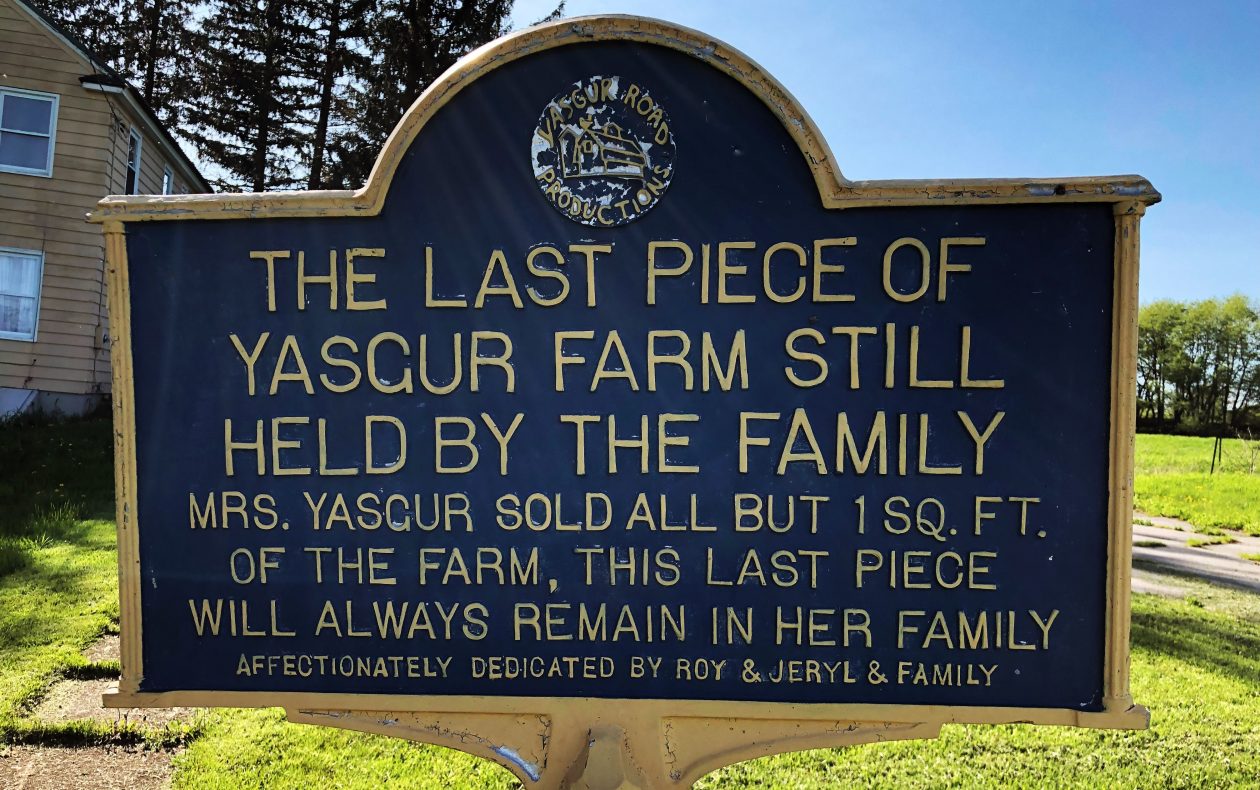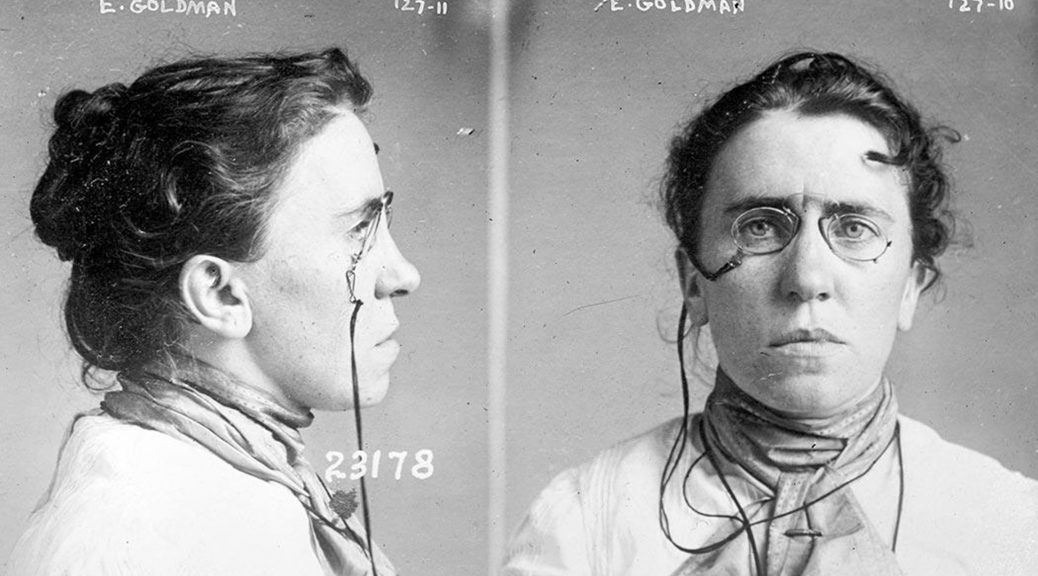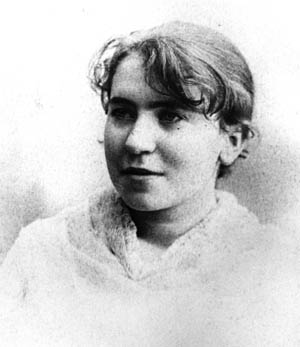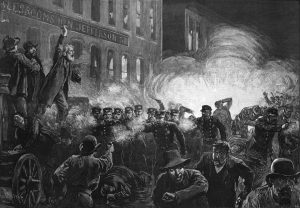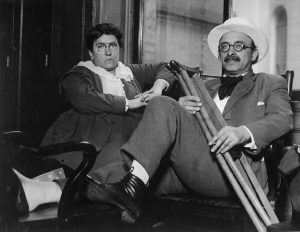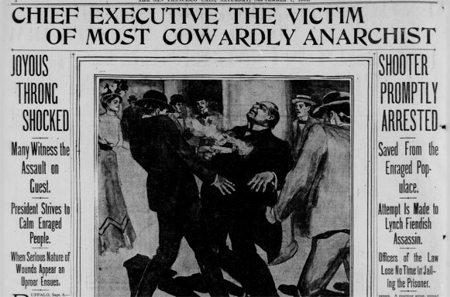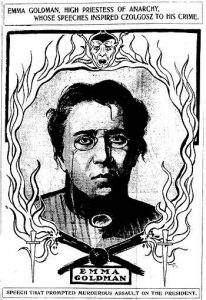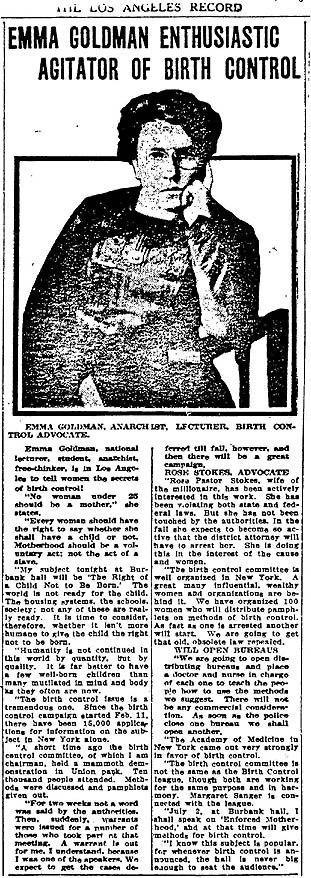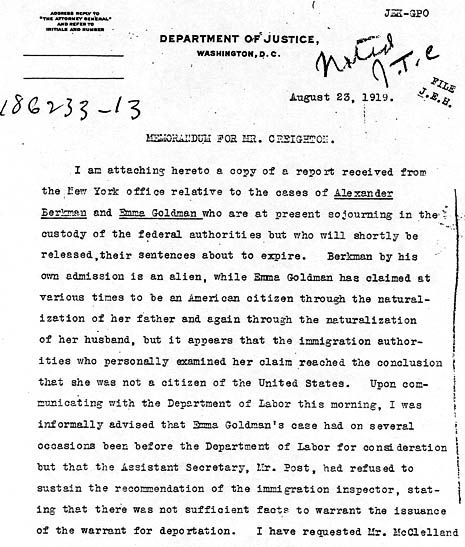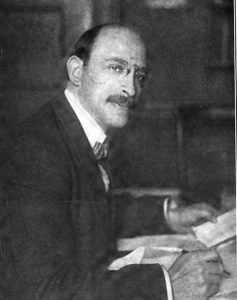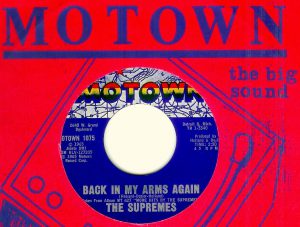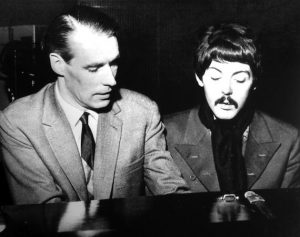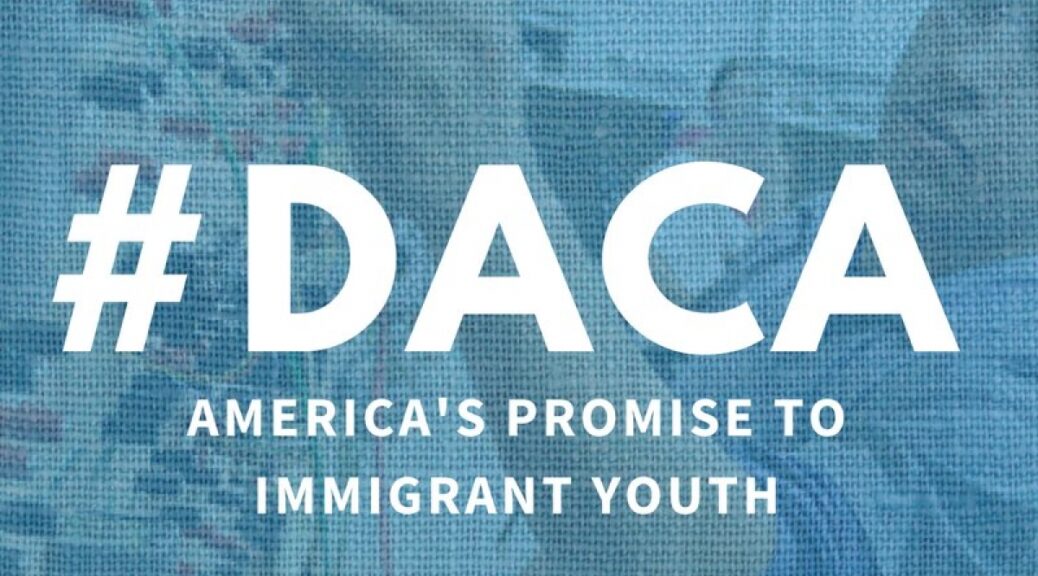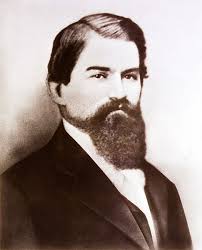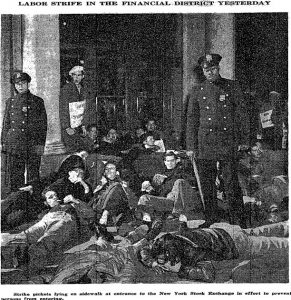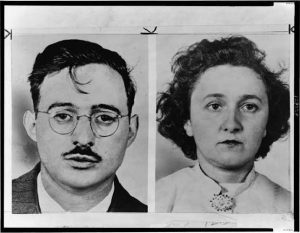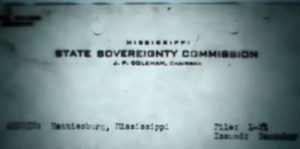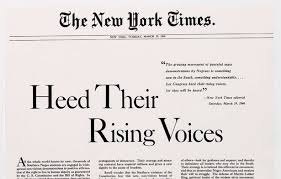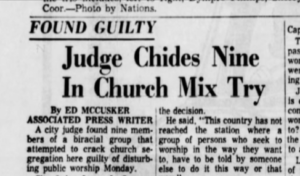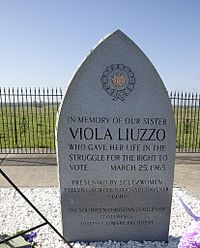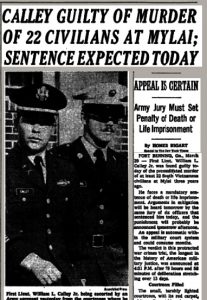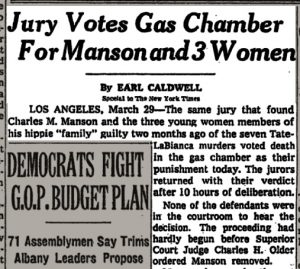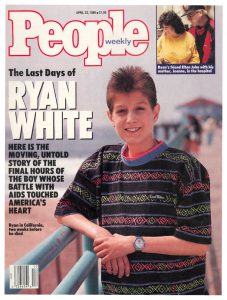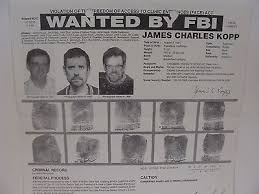Anarchist Activist Emma Goldman
June 27, 1869 – May 14, 1940
Anarchism
The Anarchist Library site states: “Anarchists believe that the point of society is to widen the choices of individuals. This is the axiom upon which the anarchist case is founded….Anarchists strive for a society which is as efficient as possible, that is a society which provides individuals with the widest possible range of individual choices.”
It continues, “Anarchism is opposed to states, armies, slavery, the wages system, the landlord system, prisons, monopoly capitalism, oligopoly capitalism, state capitalism, bureaucracy, meritocracy, theocracy, revolutionary governments, patriarchy, matriarchy, monarchy, oligarchy, protection rackets, intimidation by gangsters, and every other kind of coercive institution. In other words, anarchism opposes government in all its forms.”
Anarchist Activist Emma Goldman
Kovno, Lithuania
According to the Jewish Women’s Archive (JWA): Emma Goldmas was “born on June 27, 1869, in Kovno, Lithuania (then part of the Russian Empire), Emma Goldman became acquainted with poverty, injustice and oppression at a young age. She witnessed violence against women and children, landlords brutalizing peasants, and corrupt officials extorting fees from a powerless constituency. Her family experienced significant anti-Semitism, living in Jewish ghettoes and forced to move often in search of opportunity.
Anarchist Activist Emma Goldman
The Immigrant
She and her sister Helena came to the United States in 1885. She did not find, as so many millions before her had not found, streets paved with gold. Working-class conditions were often brutal and fatal. She found factory work near relatives in Rochester, NY
Anarchist Activist Emma Goldman
Haymarket Square Revolt
On May 4, 1886, labor and radical activists held a rally in Chicago’s Haymarket Square to protest the brutal suppression of a strike by the police. As the police attempted to stop the meeting, a bomb exploded, injuring many people and killing a police officer. In the ensuing chaos, a number of demonstrators were killed and six officers fatally injured, mostly by police gunfire.
Authorities accused Anarchists of the killings and four were executed on November 11, 1887. After living under the cruelty of her homeland and experiencing something akin to the same thing in the land of opportunity, Goldman found the idea of anarchism appealing.
Anarchist Activist Emma Goldman
Jacob Kershner
Shortly after her arrival, Goldmen met Jacob Kershner whose harsh living conditions were similar to hers. They shared an interest in reading and the arts. They married four months after then met in February 1887. A year later, disappointed that the union brought no more freedom than when single, she divorced Kershner.
She found temporary work in a New Haven, CT corset factory, but when returning to Rochester and hearing Kershner’s threats of suicide, they remarried, only to again divorce quickly in August 1899.
Such behavior caused her Jewish community to shun her, but strengthened her resolve to find her own freedom her own way.
Anarchist Activist Emma Goldman
August – December 1889
Goldman moved to New York City and began to work at the office of an anarchist newspaper, Freiheit, and helped organize the November 11 Haymarket Commemoration.
In 1889 she met Alexander Berkman who would become her life-long companion. They shared an apartment with Modest Stein, and Helene and Anna Minkin.
Anarchist Activist Emma Goldman
The Orator
October 19, 1890: Goldman spoke in Baltimore to members of the International Working People’s Association in the afternoon. She later spoke in German to the Workers’ Educational Society at Canmakers’ Hall. This was the first lecture by Goldman to be reported in the mainstream press.
Anarchist Activist Emma Goldman
Assassination attempt
July 23, 1892: in reaction to the treatment of Pennsylvania steelworkers locked out of their jobs after demanding higher wages, Berkman traveled to Pennsylvania. (Homestead Strike, July 6, 1892)
He shot and stabbed but failed to kill steel magnate Henry Clay Frick, Berkman also tried to use what was, in effect, a suicide bomb, but it didn’t detonate.
Emma Goldman was suspected of complicity. Police raid her apartment, seizing her papers. The press refered to Goldman, temporarily in hiding, as the “Queen of the Anarchists.”
July 26, 1892: the New York Times reported that “Emma Goldman who is reported to have been in this city [Pittsburg] Saturday Night, and with whom Berkmann lived at one time, could not be found yesterday. It is believed by many that she knew of Berkmann’s trip to Pittsburgh, and furnished him money to go with.”
September 19, 1892: Berkman sentenced to twenty-two years in prison.
June 1893: Illinois Governor John Peter Altgeld pardoned three men found guilty of the Haymarket bombing, effectively ending his political career.
Anarchist Activist Emma Goldman
Goldman arrested after speech
In August 1893: Goldman addressed a public meeting, urging those in need to take bread if they are hungry. Four days later, she led a march of 1,000 people to Union Square, where, speaking in German and English, she repeated her belief that workers are entitled to bread. The speech led to her arrest for inciting a riot. She pleaded not guilty. (NYT article)
October 4 – 16, 1893: Goldman was tried and found guilty of inciting to riot. She was sentenced to one year in the penitentiary on Blackwell’s Island in New York’s East River.
August 17, 1894: Goldman released from prison. Her account of the experience appears in the New York World the next day.
Anarchist Activist Emma Goldman
Continues to speak
February – June 1898: Goldman addressed sixty-six meetings in twelve states and eighteen cities; reporters noted Goldman’s improved command of English.
Anarchist Activist Emma Goldman
Leon Czolgosz
September 6, 1901: Leon Czolgosz, a Polish citizen associated with the Anarchist movement shot President William McKinley twice in the stomach while McKinley was attending the Pan-American Exposition in Buffalo, New York. McKinley had been greeting the public in a receiving line. Czolgosz later confessed to the crime, signing a statement saying that the last public speaker he had heard was Emma Goldman, but added she had never told him to kill the president.
September 10, 1901: a warrant is issued for Goldman’s arrest in connection with the (then) assassination attempt. Goldman gave herself up and was subjected to intensive interrogation. Though initially denied, bail was set at $20,000. She was never officially charged with a crime. September 14, 1901: President McKinley died of a gangrenous infection stemming from his wounds. September 23, 1901:: Leon Czolgosz was put on trial for assassinating US President William McKinley at the Pan-American Exposition in Buffalo, New York. September 24, 1901: Czolgosz convicted and Goldman released, the case against her dropped for lack of evidence. October 29, 1901: Leon Czolgosz executed.
Anarchist Activist Emma Goldman
Immigration Acts
March 3, 1903: the 1903 Immigration Act banned the entry into the U.S. of anarchists, beggars, epileptics, and importers of prostitutes. The act became a model for subsequent restrictive, anti-immigrant laws in the years and decades ahead.
The 1918 Immigration Act, passed on October 16, 1918, expanded the definition of an “anarchist,” allowing the government to deport more alleged radicals.
The 1924 Immigration Act, passed on May 26, 1924, which included a “national origins” quota system that discriminated against people seeking to come to the U.S. from Eastern and Southern Europe.
The 1952 McCarran-Walter Act, passed on June 27, 1952, was a Cold War law that barred the immigration of alleged “subversives” and allowed the government to deport immigrants who were deemed subversive.
1965 Immigration Act replaced the 1924 act. The 1965 act abolished the quota system. President Lyndon signed the 1965 act into law on October 3, 1965, in a ceremony at the Statue of Liberty.
Anarchist Activist Emma Goldman
International Workers of the World
June 27, 1905: Western miners and other activists form the Industrial Workers of the World at a convention in Chicago. The IWW, or Wobblies, was one of the most radical of all organized labor groups. Though they will achieve only limited success in moving their agenda forward, they will inspire generations of labor activists with their militant spirit. The Wobbly motto: “An injury to one is an injury to all.”
Anarchist Activist Emma Goldman
Mother Earth magazine
InMarch, 1906: the publication of the first issue of Mother Earth. Emma Goldman launched a speaking tour to raise money for the publication. It published articles on a variety of anarchist topics including the labor movement, education, literature and the arts, state and government control, and women’s emancipation, sexual freedom, and was an early supporter of birth control. The magazine ran until 1917.
Anarchist Activist Emma Goldman
Berkman and Goldman again
May 18, 1906: Alexander Berkman released from prison after serving nearly 14 years of his 22-year sentence.
On May 26, 1906 a New York Time article headline reads: AN ANARCHIST HONEYMOON. In it, the reporter talks to the couple that the Chicago police are searching for.
October 30, 1906: Goldman arrested in Manhattan while attending an anarchist meeting called to protest police suppression of free speech at a previous meeting. She was charged with unlawful assembly for the purpose of overthrowing the government under the new criminal laws against anarchy.
January 6, 1907: Goldman arrested while speaking on “The Misconceptions of Anarchism” at an afternoon meeting of 600 people in New York City.
Anarchist Activist Emma Goldman
PFC William Buwalda
April 26, 1908: Goldman lectured on patriotism at Walton’s Pavilion in San Francisco. A US soldier, PFC William Buwalda, attended the lecture in uniform and was witnessed shaking her hand.
Within two weeks, he is court-martialed in violation of the 62nd Article of War, and found guilty by a military court, dishonorably discharged and sentenced to five years at hard labor on Alcatraz Island, San Francisco, California.
May 22, 1908: William Buwalda’s sentence was commuted to three years’ hard labor, in deference to Buwalda’s 15 years of excellent military service and the assumption of a temporary lapse in judgment under the sway of an “anarchist orator.”
December 31, 1908: President Theodore Roosevelt pardoned William Buwalda, In January of 1909, Emma Goldman announced that anarchists across the country had raised one thousand dollars for Buwalda to begin a new life after prison.
Anarchist Activist Emma Goldman
Rout
January 15, 1909: San Francisco police arrested Goldman and Ben Reitman just before they were about to hold a meeting. Police charged them with rout—the assembly of two or more persons at a meeting where measures are advocated where if they were actually carried out would lead to a riot.
Police also arrested William Buwalda for his protest of their arrest.
July 23, 1909: Goldman spoke in NYC. Among her comments were: Many people are afraid to come to an Anarchist meeting because they fear that they will be blown up. Isn’t it stupid to be afraid of violence; only of individual violence. They have no objection to battlefields, and policemen, and electric chairs, and other ornaments of the present system. So long as violence is committed in the name of the State they are happy.” She referred to the hanging of the Anarchists after the Haymarket riots as “judicial murder.”
January 14, 1910: Mother Earth magazine was banned from the mails after Anthony Comstock complained about Goldman’s essay, “The White Slave Traffic,” under section 497 of the Postal Laws and Regulations Act of 1902. Later, the issue will be released by the Post Office after Comstock is forced to withdraw his objections.
Anarchist Activist Emma Goldman
Anarchists excluded
March 26, 1910: an amendment to the Immigration Act of 1907 passed Congress. The 1910 Act, while not changing the language excluding anarchists, streamlined the methods of prosecution and deportation of excludable aliens, forbidding any anarchists into the U.S.
On her 1910 tour, she had spoken 120 times in thirty-seven cities in twenty-five states, reaching 25,000 people. On December 17, 1910 Goldman published her first book, Anarchism and Other Essays.
Anarchist Activist Emma Goldman
Ben Reitman
May 14, 1912: Goldman and Ben Reitman arrived in San Diego to support the efforts of the I.W.W. An angry crowd of 2,000 surrounded Goldman’s hotel.
Vigilantes seized Reitman, tarred and”sagebrushed” him, and burned the letters “I.W.W.” skin with a cigar. The vigilantes also forced Reitman to kiss the American flag and sing “The Star Spangled Banner.” He later made his way back to San Diego, and then to Los Angeles, where he reunited with Goldman.
May 17, 1912:: in a New York Times article, Ben Reitman described his abduction and torture.
A year later, on May 20, 1913: Goldman and Reitman returned to San Diego. Goldman was scheduled to lecture on Ibsen’s Play, “An Enemy of the People.”
Upon their arrival, they were taken to a police station under police protection, surrounded by a mob, and later escorted and placed aboard the afternoon train to Los Angeles “for their own safety.”
Anarchist Activist Emma Goldman
World War I
June 28, 1914: a Bosnian Serb anarchist assassinates Archduke Ferdinand, the heir to the Austrian throne.
August 4, 1914: Britain declares war on Germany.
Anarchist Activist Emma Goldman
Goldman and Women’s Health
August 6, 1915: Goldman and Reitman arrested in Portland, OR for distributing literature on birth control. Goldman wass released on $500 cash bail and announced that she would try to speak on the subject of birth control on August 7. Reitman remained in jail.
August 7, 1915: Goldman and Ben Reitman fined $100 for having distributed birth control information. Goldman spoke that evening on “The Intermediate Sex (A Discussion of Homosexuality)” at Turn Hall. In the audience were policemen in plain clothes, a deputy district attorney, and a deputy city attorney. She was not arrested.
February 8, 1916: Goldman lectured in NYC on Women’s Health.
February 11, 1916:: Goldman was scheduled to lecture on the “Philosophy of Atheism” at Vorwart Hall, NYC. She was arrested as she was about to enter the building, and charged with violating Section 1142 of the New York State Penal Code for lecturing the previous Tuesday on a medical question (birth control) in defiance of the law. Goldman released on $500 bail.
March 1, 1916: Goldman spoke at a birth control mass meeting held at Carnegie Hall in New York City. Other speakers included Margaret Sanger, Leonard Abbott, Gilbert E. Roe, Theodore Schroeder, Bolton Hall, John Reed, Anna Strunsky Walling, Dr. William J. Robinson and Dr. A. L. Goldwater.
April 20, 191: Goldman tried at Special Sessions for lecturing on birth control. She was sentenced to fifteen days in Queens County Jail after refusing to pay a $100 fine.
May 5, 1916: Goldman spoke at a birth control meeting at Carnegie Hall, NYC.
January 8, 1917: a New York court acquitted Goldman of the charge of circulating birth control information.’
Anarchist Activist Emma Goldman
Anti-Draft
June 14, 1917:: Goldman and Alexander Berkman spoke at a No-Conscription League mass meeting. After the meeting, the police required men of draft age to show their conscription cards. As a result 30 men were detained, and two arrested.
June 15, 1917: President Woodrow Wilson signed the Espionage Act, which set penalties of up to thirty years’ imprisonment and fines of up to $10,000 for persons aiding US enemies, interfering with the draft, or encouraging disloyalty in the armed forces. On the same day, Goldman, Berkman, and William Bales were arrested at the Mother Earth offices. Manuscripts, letters and subscription lists, as well as subscription lists for the No-Conscription League and another publication, The Blast, were confiscated.
June 16, 1917: Goldman and Alexander Berkman were indicted on the charge of obstructing the Draft Act (Selective Service Act) in NYC. They pled not guilty. Bail set at $25,000 each.
July 9, 1917: Goldman and Alexander Berkman found guilty of conspiracy against the selective draft law in NYC.
September 11, 1917: while out on bail, Goldman was prevented from speaking at the Kessler Theater by the New York City police. She appeared with a gag over her mouth.
Goldman and Berkman were found guilty, fined $10,000 and sentenced to two years’ imprisonment
Berkman was sent to Atlanta State Penitentiary in Georgia and Goldman was taken to Jefferson City Penitentiary in Missouri.
September 26, 1917: the U.S. Post Office directed Mother Earth to show cause why it should not be barred from the mails because of its opposition to the war.
The Post Office subsequently denied Mother Earth 2nd Class mailing privilege (a device that was widely used during World War I, and effectively denied use of the mails for publications), and Mother Earth suspended publication.
Anarchist Activist Emma Goldman
Deportation
September 27, 1919: Goldman and Berkman released from federal prison but J Edgar Hoover, director of the Justice Department’s General Intelligence Division, convinced the courts to deny their citizenship claims, have them re-arrested, and prepare deportation orders.
December 1, 1919: the Department of Labor ordered Goldman and Alexander Berkman to appear at Ellis Island for deportation to Russia.
December 21, 1919: the ship USAT Buford, labeled the “Red Ark,” embarked from New York City on this day, carrying 249 aliens who were deported because of their alleged anarchist or Communist beliefs.
An estimated 184 of the 249 aliens on the Buford were members of the Union of Russian Workers. All of the passengers were shipped to Russia.
Hoping to see the freedom socialism promised, Goldman and Berkman became disillusioned by its terror and despotism.
They left Russia in 1921.
Anarchist Activist Emma Goldman
Deportee Berkeman
Berkman moved to Berlin, Germany then to Saint-Cloud, France. He continued to support the ideals of anarchism. Poor health and chronic pain led him to shoot himself, He did not die immediately, but lingered in a coma for several hours before dying.
Anarchist Activist Emma Goldman
Deportee Goldman
With the exception of a brief ninety-day lecture tour in 1934, Goldman spent the remaining years of her life in exile from the United States, wandering through Sweden, Germany, France, England, Spain and Canada in a futile search for a new political “home.”
July – December 1922: Goldman completed a manuscript, My Two Years in Russia.
In 1923, Goldman’s manuscript published under the title My Disillusionment in Russia.
January, 1925. In London, Goldman continued her efforts to expose the Bolsheviks as betrayers of the revolution and violators of civil liberties, a task made more difficult by the return of a British trade union delegation that reported favorably on conditions in the Soviet Union.
June 1925: discouraged by the public response to her lectures on Russia, Goldman focused on earning money by writing a new series of lectures on drama.
June 27, 1925: on her birthday, Goldman married James Colton, an elderly anarchist friend and trade unionist from Wales, in order to obtain British citizenship and the right to travel and speak more freely.
In October 1926:: Goldman sailed for Canada to lecture; its proximity rekindled her hope for readmission to the U.S.
In 1930: journalist H. L. Mencken petitioned the U.S. Department of State to revoke Goldman’s deportation and grant her a visitor’s visa. He also requested that the Department of Justice return her personal papers seized in the 1917 raid on the Mother Earth office, to no avail.
March 26 – April 4, 1933: the New York World published a series of controversial articles by Goldman exposing the harsh political and economic conditions in Russia.
Anarchist Activist Emma Goldman
Back in the USA
January 1934: the U.S. Department of Labor approved a three-month visa, effective February 1, for Goldman to lecture in the U.S. on non-political subjects. Once word of her tour leaked, many lecture agencies in the U.S. offered their services.
February 1934: Goldman visited relatives in Rochester, NY before arriving in NYC on February 2, where she was mobbed by reporters and photographers at Pennsylvania Station and the Hotel Astor.
March 21 – April 2, 1934: Goldman delivered five lectures in Chicago. Sixteen hundred attended the lecture under the auspices of the Free Society Forum on March 22, twelve hundred at the University of Chicago on March 23, and a thousand at Northwestern University on March 26. Fifteen hundred attend a banquet held in her honor at the Medinah Hotel on March 28.
April 30, 1934: Goldman returned to Canada.
May 3, 1935: from the New York Times: [Montreal] Emma Goldman was hailed as “one of the great women of the age,” whose qualities of mind and sould would be remembered long after she had gone by Rabbi Stern of Montreal last night when friends and admirers of Miss Goldman gave a farewell dinner before she leaves for Europe.”
Anarchist Activist Emma Goldman
Her final days
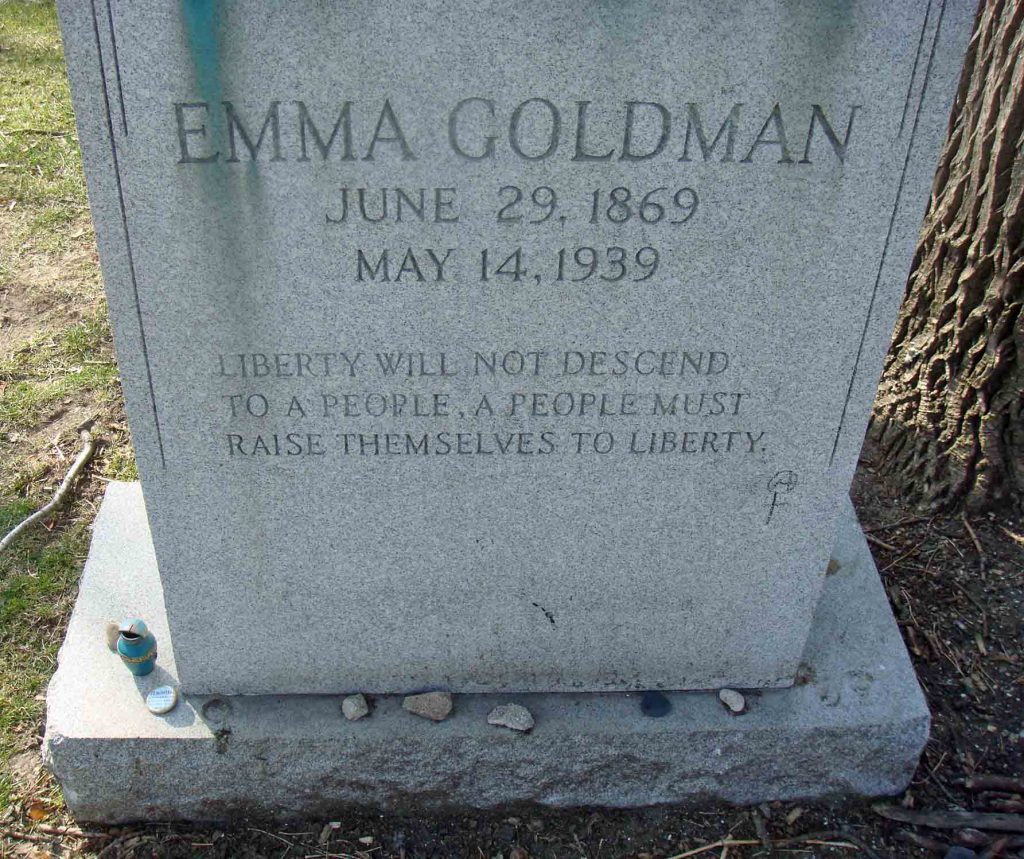
February 17, 1940: living in Toronto, Goldman suffered a stroke that left her paralyzed on her right side and unable to speak.
May 14, 1940: Goldman died at the age of seventy. Tributes and messages of condolence arrive from around the world. Her body was taken to the Labor Lyceum in Toronto. The Rev. Salem Bland delivered a eulogy.
May 17, 1940: Goldman was buried in Waldheim Cemetery, Chicago, close to the Haymarket memorial. Alexander Berkeman had requested the same, but lacking funds, he had had to be buried in France.
In an address delivered at the burial, Jacob Siegel, editor of The Jewish Daily Forward, said, “Emma Goldman was a rebel all her life against injustices, until after the last war, when a change took place in her philosophy and mode of living. Were she living today, Emma Goldman would be assisting in the present human effort to destroy Hitlerism.”
https://www.youtube.com/watch?v=Qbi2rMQveHo
| It’s Christmastime in Washington
The Democrats rehearsed Gettin’ into gear for four more years Things not gettin’ worse The Republicans drink whiskey neat And thanked their lucky stars They said, ‘He cannot seek another term They’ll be no more FDRs’ I sat home in Tennessee Staring at the screen With an uneasy feeling in my chest And I’m wonderin’ what it means |
So come back Woody Guthrie
Come back to us now Tear your eyes from paradise And rise again somehow If you run into Jesus Maybe he can help you out Come back Woody Guthrie to us now I followed in your footsteps once Back in my travelin’ days Somewhere I failed to find your trail Now I’m stumblin’ through the haze But there’s killers on the highway now And a man can’t get around So I sold my soul for wheels that roll Now I’m stuck here in this town
|
There’s foxes in the hen house
Cows out in the corn The unions have been busted Their proud red banners torn To listen to the radio You’d think that all was well But you and me and Cisco know It’s going straight to hell So come back, Emma Goldman Rise up, old Joe Hill The barracades are goin’ up They cannot break our will Come back to us, Malcolm X And Martin Luther King We’re marching into Selma As the bells of freedom ring |
